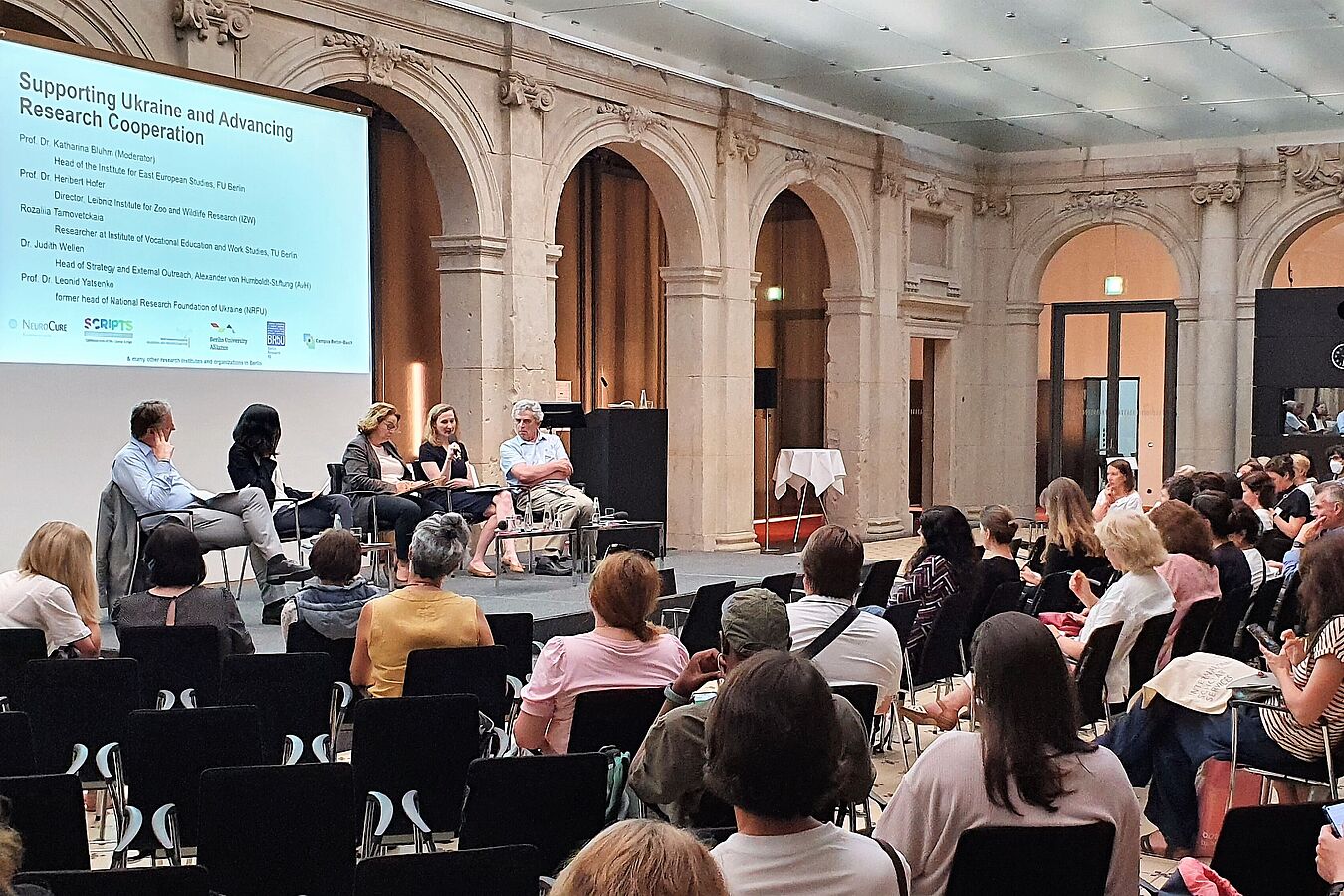Multiple Berlin-based scientific institutions – including Berlin Research 50 (BR50), the Berlin Center for Global Engagement of the Berlin University Alliance, the Berlin-Brandenburg Academy of Sciences and Humanities (BBAW) and several of Berlin’s Clusters of Excellence, as well as the German-Ukrainian Academic Society – came together recently to organize an information and networking event for researchers who have fled from Ukraine.
The event provided an overview of the science system in Berlin and Germany, as well as offering practical assistance. Funding organizations such as the Alexander von Humboldt Foundation (AvH), the Einstein Foundation Berlin and the German Academic Exchange Service (DAAD), as well as Berlin’s universities and a number of non-university research institutions were on site to explain their programs at information desks. Refugee academics from Ukraine were also invited to share their experiences.
At the concluding panel discussion, researchers and representatives of scientific organizations from Germany and Ukraine spoke about the medium- and long-term perspectives for German-Ukrainian science relations. Members of the panel included Professor Heribert Hofer, Director of the Leibniz Institute for Zoo and Wildlife Research, which is part of FVB and a member of BR50; Rozaliia Tarnovetckaia, visiting researcher at the Institute of Vocational Education and Work Studies at Technische Universität Berlin; Professor Leonid Yatsenko, former Head of the National Research Foundation of Ukraine and currently visiting researcher at Humboldt-Universität zu Berlin; and Dr. Judith Wellen, Head of the Strategy and External Relations Department at the Alexander von Humboldt Foundation. The discussion was moderated by Professor Katharina Bluhm from the Institute for Eastern European Studies at Freie Universität Berlin.
Funding options were a particular topic of discussion. The panel agreed that these need to be expanded further so that longer funding periods can be covered and such opportunities will remain in place in the future. This, however, contrasts with a recent decision by the German Federal Foreign Office to make drastic cuts in international exchange programs. The AvH and the DAAD have been threatened with enormous cuts as early as this fiscal year. In addition, the speakers suggested that the use of financial resources should generally be more flexible and less earmarked, so that they can also be used outside of Germany. For example, initiatives and funding programs are planned that would support scientists who return to Ukraine for a transitional period. Furthermore, this would help to establish long-term research collaboration. Partnerships between academic institutions in Germany and Ukraine should be fostered; furthermore, joint institutions, such as international graduate centers, should also be established.
Refugee scientists currently suffer from a significant lack of information on these topics. The panel therefore emphasized that such Meet & Learn events should be offered continuously – for example as easily accessible, online events to facilitate frequent and widespread participation. In addition, such events should be expanded to assist all academics living in exile. Finally, the Berlin4Ukraine organizers have also planned to incorporate international researchers who have already successfully established themselves in Germany, thus ensuring a more effective exchange of experiences.


